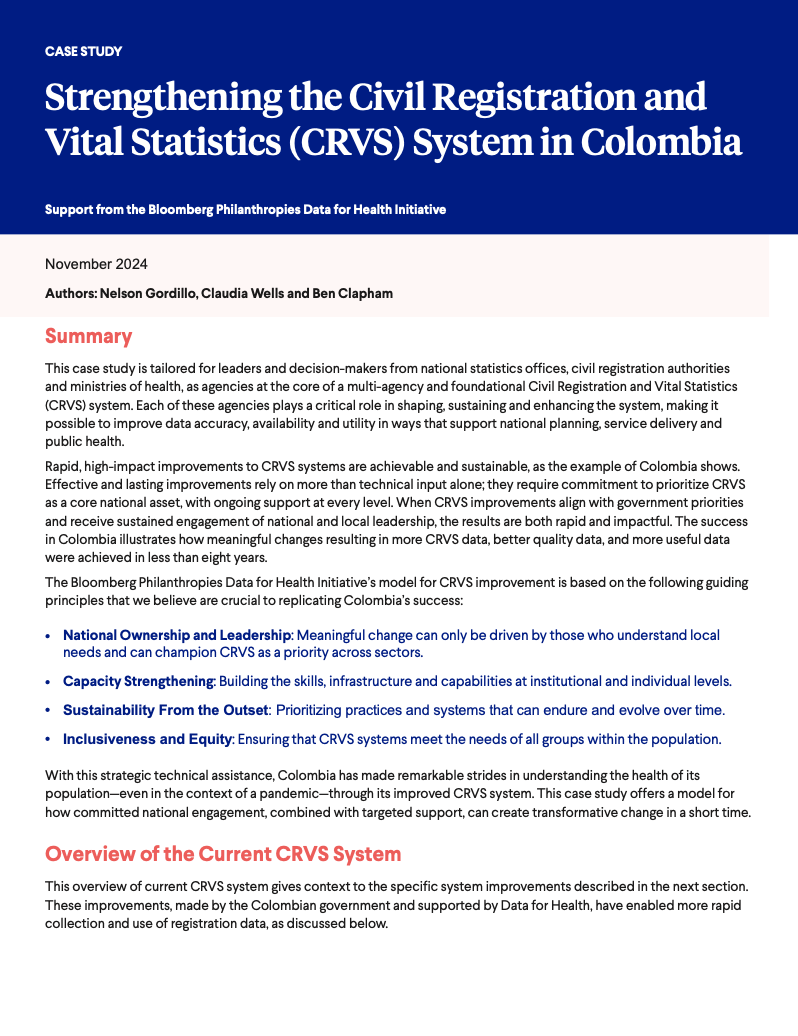This case study is tailored for leaders and decision-makers from national statistics offices, civil registration authorities and ministries of health, as agencies at the core of a multi-agency and foundational Civil Registration and Vital Statistics (CRVS) system. Each of these agencies plays a critical role in shaping, sustaining and enhancing the system, making it possible to improve data accuracy, availability and utility in ways that support national planning, service delivery and public health.
Rapid, high-impact improvements to CRVS systems are achievable and sustainable, as the example of Colombia shows. Effective and lasting improvements rely on more than technical input alone; they require commitment to prioritize CRVS as a core national asset, with ongoing support at every level. When CRVS improvements align with government priorities and receive sustained engagement of national and local leadership, the results are both rapid and impactful. The success in Colombia illustrates how meaningful changes resulting in more CRVS data, better quality data, and more useful data were achieved in less than eight years.
Recent Abstracts
Culture is Medicine- a Model of Indigenous Harm Reduction in Practice
Trouble Brewing – The Case for Alcohol Policy (Second Edition)
Lessons from Vietnam’s Campaign for a Tax on Sugar-Sweetened Beverages
Principles of Alcohol Taxation
Clean Air in Jakarta: Gaps and Possibilities Toward Low Emission Practices
Public Attitudes Towards Alcohol Policy: South Africa
Quality Assurance and Improvement Framework for Medical Certification of Cause of Death and…
More Data Better Health: Climate and Health in the Legal Amazon
Mais Dados Mais Saúde: Clima e Saúde na Amazônia Legal
Health Taxes Action Guide
